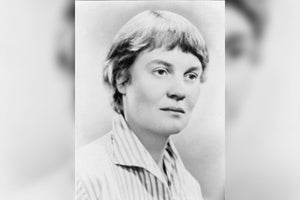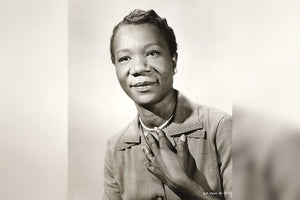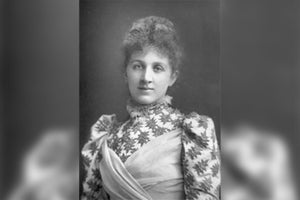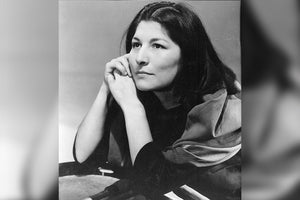Who was Maud Gonne?
Maud Gonne was a famous Irish activist, feminist, journalist, and actress. She was also called the "Irish Joan of Arc" for her contributions to the independence movement of Ireland. She is most popularly known for her dedication to the implementation of the Home Rule.
She has founded organizations to help prisoner victims, Irish women, and children. For her contributions to Irish independence and women’s and children’s rights, she received a Nobel Peace Prize in 1974, 21 years after her death.
Five Facts about Maud Gonne
-
Maud Gonne was also a founding member of the Social Credit Party.
-
She campaigned for famine relief caused by evictions during the 1890s.
-
She founded the organization Inghinidhe na hÉireann, one of the first women-led nationalist parties.
-
Maud is also known as the Irish Joan of Arc.
-
She started acting so that she and her sister would stay financially afloat then used it to further her cause.
Inspirational Quotes from Maud Gonne
“The English may batter us to pieces, but they will never succeed in breaking our spirit.”
Maud Gonne Biography
Early Life
Maude was born on December 21, 1866, in England to Edith Frith Gonne and Captain Thomas Gonne. Her mother died from tuberculosis while Maud was still at a young age.
Maud and her sister were then sent to France to get an education from a boarding school. They were taught French, literature, history, and cooking. Their caretaker also sparked their interest in politics and art.
In 1884, Maud and her sister joined their father in Dublin after he was permanently posted in that area. During these years, she took her mother's role as a hostess of the household. To help her father advance in his career, she hosted parties. However, her father died in 1886.
Maud became an actress and became financially independent in 1887 after her father's will was probated. She returned to Paris after.
Career
Irish Nationalist and Women's Movement
During the 1890s, Maud traveled around England, Scotland, Wales, and the United States to advocate her nationalist cause. By 1896, she was able to found the Irish League.
During British colonization in Ireland, Maud fought to preserve her people's culture.
In 1897, Maude along with Arthur Griffith and poet W.B. Yeats organized protests against the Diamond Jubilee of Queen Victoria.
Even in her acting career, she was still using it as a platform for the nationalist movement.
To oppose the British from gaining the loyalty of the Irish people during the 1900s, Maud held special receptions for Irish children. Along with other volunteers, she was able to found the Inghinidhe na hÉireann, meaning Daughters of Ireland. It was an Irish nationalist women's organization that she led from 1900 to 1914 before it merged into The Irishwomen's Council, also known as Cumann na mBan.
On their first meeting, twenty-nine women attended. Apart from being a voice for the Ireland nationalist movement, the organization also became a platform for Irish women in the country's affairs.
Imprisonment and Freedom
Maud and her children moved to Paris again. But even there, she remained active. By 1913, she established the French newspaper L'Irlande libre.
Shortly after her return, she and her daughter were arrested in Dublin and sent to prison in England for six months.
By 1921, she advocated for the Republican side and opposed the Anglo-Irish Treaty. Maud also worked with the Irish White Cross to help victims of violence. They distributed the funds from the Cumann na mBan to help victims.
She settled in Dublin in 1922. There she continued to fight for the rights of the Irish people and took part in the suffragette movement. She became the head of The Women's Peace Committee. In a few months, she also set up another organization named the Women's Prisoner Defence League.
During that time, women were sent to men's prison camps. Her organization helped the prisoners and supported their families.
It was a long battle, and she was arrested and imprisoned in the Mountjoy Jail. Her office and home were raided. Maud was released on April 28, 1923. However, that did not stop her from protesting and fighting for human rights.
Later Life, Death, and Legacy
She published her autobiography titled "Servant of the Queen" in 1938, and by 1974, she received the Nobel Peace Prize. Her son, Sean MacBride was also an active politician in Ireland. He was among the people who established Amnesty International, an international non-government organization that campaigns to end the abuse of human rights.
Maud Gonne died on April 27, 1953, on Roebuck House, surrounded by her family, Iseult, Sean, and Sean's wife. She was buried at the Glasnevin Cemetery in Dublin.
Maud Gonne not only fought for independence and women's rights, she also worked to improve prison conditions.
![]() Fast Shipping
Fast Shipping![]() Subscribe to our Newsletter
Subscribe to our Newsletter![]() 🌟 New Global Competition 🌟
🌟 New Global Competition 🌟















